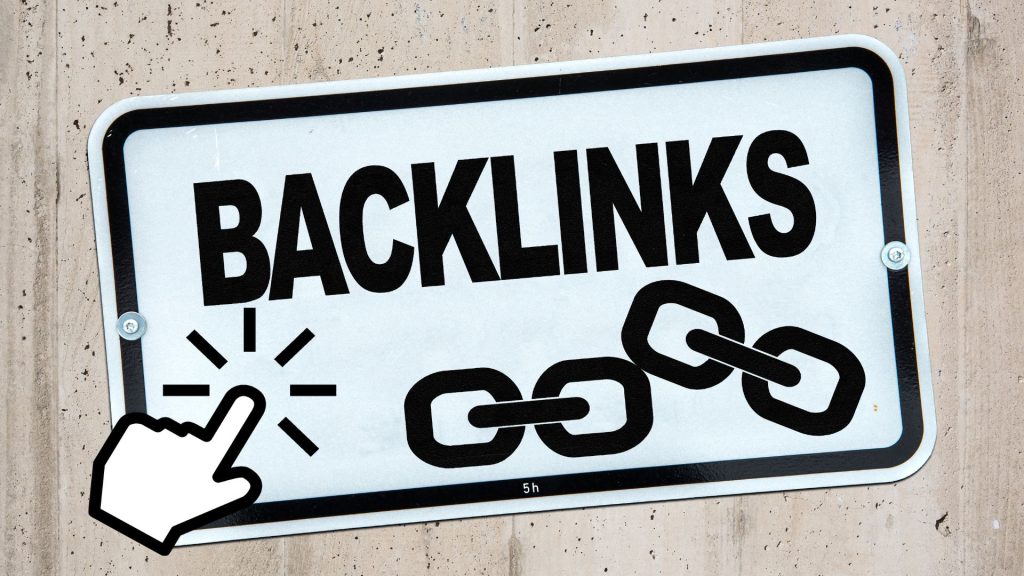How to do backlink in seo: Backlinks are an important part of search engine optimization (SEO) since they determine a websites visibility and authority. This post will go through the fundamentals of backlinks their significance and efficient tactics for developing and utilizing them to help your SEO efforts.
Introduction
In the digital landscape, backlinks refer to hyperlinks that connect one webpage to another. They act as pathways, directing users from one site to another. From an SEO perspective, backlinks serve as an endorsement of a website’s credibility and value. Search engines, such as Google, view backlinks as votes of confidence, considering them a strong signal of a website’s relevance and authority.
Understanding the Importance of Backlinks
Backlinks are like virtual referrals. When a credible website connects to your material, search engines recognize that your website is worth studying. Having more high quality backlinks boosts your websites chances of ranking well in search engine results pages (SERPs). Backlinks generate traffic and raise visibility, increasing the likelihood of potential visitors and buyers finding your website.
Different Types of Backlinks
- Natural backlinks: These are the organic, voluntary backlinks that occur naturally when other websites find your content valuable and link to it. Natural backlinks are highly desirable as they demonstrate genuine interest and endorsement from other webmasters.
- Outreach backlinks: These backlinks are acquired through proactive outreach efforts. It involves reaching out to relevant websites and influencers, requesting them to link to your content. Outreach backlinks require persuasive communication and the ability to showcase the value your content brings to their audience.
- Guest blogging backlinks: Guest blogging involves writing and publishing articles on other websites as a guest contributor. By including backlinks to your own website within the guest post, you can generate valuable backlinks and attract traffic from the host website’s audience.
- Social media backlinks: Sharing your content on social media platforms can lead to backlinks when users find your content engaging and share it with their own followers. Social media backlinks can boost your website’s visibility and attract new visitors.
- Web directory backlinks: Submitting your website to reputable web directories can generate backlinks. However, it is essential to choose quality directories that are relevant to your niche and have a good reputation.
How to Identify High-Quality Backlinks
Not all backlinks are created equal. It’s critical to prioritize the acquisition of high-quality backlinks that can help your SEO efforts. Here are some key factors to consider when identifying high-quality backlinks:
Domain Authority and Page Authority
Domain authority and page authority are metrics that indicate the credibility and influence of a website. Websites with higher domain authority and page authority are more likely to provide valuable backlinks. Tools like Moz’s Open Site Explorer or Ahrefs can help you analyze these metrics.
Relevance and Context
Backlinks from websites that are relevant to your industry or niche carry more weight. Search engines value contextual links that come from relevant sources, as they provide users with a seamless and coherent browsing experience.
Trustworthiness and Credibility
Backlinks from respectable and reliable websites are more valuable. Search engines prioritize links from authoritative sources, as they signal the reliability and credibility of your content.
Link Placement
The placement of your backlink within the content also matters. Users are more likely to notice and click on links that are positioned inside the body of an article or in a prominent location.
Anchor Text Optimization
Anchor text refers to the clickable text that contains the backlink. Optimizing anchor text with relevant keywords can further enhance the SEO value of the backlink. To avoid over-optimization, it is crucial to maintain a natural and diverse anchor text profile.
Strategies for Building Backlinks
Now that we understand the significance of high-quality backlinks, let’s explore some effective strategies for building them:
Creating Valuable Content
The foundation of successful backlink building lies in creating exceptional content that resonates with your target audience. By consistently delivering valuable and engaging content, you increase the likelihood of attracting natural backlinks from other websites.
Guest Blogging and Influencer Outreach
Guest blogging allows you to showcase your expertise on external platforms and build relationships with influential bloggers and website owners. By contributing valuable content to authoritative websites, you can earn backlinks and gain exposure to a wider audience.
Social Media Engagement
Active participation on social media platforms can lead to backlinks. Engage your audience, distribute your material and cultivate partnerships with industry influencers. When your material is shared and referred on social media, your chances of obtaining quality backlinks grow.
Participating in Forums and Communities
Engaging in online forums and communities relevant to your industry can help you establish yourself as an authoritative figure. By providing valuable insights and contributing to discussions, you can attract attention to your website and earn backlinks from forum members.
Link Reclamation
Monitor your brand mentions and unlinked references across the web. Reach out to website owners and request them to convert those mentions into valuable backlinks. Link reclamation helps you capitalize on existing opportunities and maximize your backlink profile.
Best Practices for Effective Backlink Building
To ensure the effectiveness of your backlink building efforts, it’s important to follow these best practices:
Focus on Quality Over Quantity
A few high-quality backlinks from authoritative sources are more valuable than numerous low-quality backlinks. Concentrate on developing a robust, diversified, and natural backlink profile.
Diversify Your Backlink Profile
Avoid relying on a single source for backlinks. Seek opportunities from various domains, including different types of websites, social media platforms, and forums, to create a diverse and robust backlink profile.
Monitor and Disavow Toxic Backlinks
Monitor your backlink profile on a regular basis to discover any poisonous or spammy backlinks. Disavow these links using Google’s Disavow Tool to prevent them from negatively affecting your SEO.
Stay Updated with SEO Trends and Algorithms
Search engine algorithms and recommended practices for SEO are always changing. Stay updated with the latest trends and algorithm changes to ensure your backlink building strategies align with current SEO guidelines.
Be Patient and Persistent
It takes time and work to build a solid backlink profile. Don’t expect overnight results. Be patient and persistent in your outreach efforts, content creation, and relationship building. Consistency and dedication will yield long-term benefits.
Tools to Help with Backlink Analysis and Tracking
Several tools can assist you in analyzing and tracking your backlinks. Here are some popular ones:
Ahrefs: A comprehensive SEO tool that provides in-depth backlink analysis, competitor research, and keyword tracking.
Moz: Moz offers tools like Link Explorer and Moz Pro to help you analyze your backlinks, monitor your website’s performance, and track keyword rankings.
SEMrush: SEMrush offers backlink analysis, competitive research, and keyword tracking features to optimize your SEO efforts.
Majestic: Majestic’s Site Explorer provides detailed backlink analysis and helps you understand your website’s authority and trustworthiness.
You may acquire important insights into your backlink profile, find chances for development, and track the performance of your backlink building methods by using these tools.
Conclusion
Backlinks are crucial for SEO, as they boost your websites visibility and authority. By understanding the importance of high-quality backlinks, identifying effective strategies, and following best practices, you can enhance your backlink building efforts. Remember to focus on creating valuable content, engage in outreach and relationship-building, and utilize tools to track and analyze your backlinks. Stay patient, adapt to SEO trends, and continuously work towards building a strong and diverse backlink profile to boost your website’s SEO performance.
FAQs
Q1. How long does it take for backlinks to impact SEO?
A1. Backlinks’ influence on SEO can vary depending on a variety of criteria, such as the authority of the connecting domain, the relevancy of the backlink, and the general competition of the term or industry. In general, it may take several weeks to several months to observe the positive effects of backlinks on search engine rankings.
Q2. Are all backlinks equally valuable?
A2. No, not all backlinks are equally valuable. Backlinks from authoritative, relevant, and trustworthy websites hold more weight and have a stronger impact on SEO. When developing backlinks, it is critical to focus quality above quantity.
Q3. Can I buy backlinks to improve my SEO?
A3. Buying backlinks is against Google’s guidelines and can result in severe penalties. It’s important to focus on organic and natural backlink building strategies rather than resorting to buying links, as it can harm your website’s reputation and rankings.
Q4. Should I disavow all low-quality backlinks?
A4. It’s recommended to disavow toxic and spammy backlinks that can potentially harm your website’s SEO. However, exercise caution and thoroughly analyze each backlink before disavowing. Use tools like Google Search Console and backlink analysis tools to identify and disavow harmful backlinks.
Q5. How many backlinks do I need to rank well in search engines?
A5. The quantity of backlinks alone is not a guarantee of ranking well in search engines. Quality and relevance are more important factors. It’s better to focus on acquiring high-quality backlinks from authoritative sources rather than obsessing over a specific number. Remember the quality holds more significance than the quantity.
Q6. Should I only focus on external backlinks, or are internal links important too?
A6. Both external backlinks from other websites and internal links within your own website are essential for SEO. External backlinks demonstrate the credibility and authority of your website, while internal links improve website navigation, user experience, and help search engines understand the structure of your site. Strive for a healthy balance between external and internal linking strategies.
Thank you for reading this comprehensive guide on how to do backlinks in SEO. Building a strong backlink profile requires time, effort, and strategic planning, but the benefits in terms of improved visibility, organic traffic, and higher search engine rankings are well worth it.
Read Out our latest Article: HOW TO CHECK BACKLINKS FOR FREE – SEO FREE BACKLINK CHECKER







